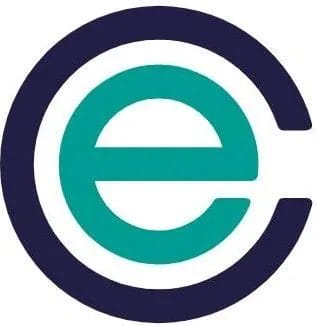Organisations in the UK can reclaim VAT on the fuel component of mileage expenses paid to individuals.
However, navigating this process is complex and requires gathering specific evidence to meet HMRC requirements.
In our blog, we’ve compiled all the necessary information on reclaiming VAT for fuel and petrol expenses during business trips, helping you choose the best approach for your organisation.
Who is eligible to reclaim VAT on fuel?
To reclaim VAT on business expenses, including fuel, you need to be a VAT-registered business.
If your annual turnover is below £85,000, you can opt to register for VAT and claim back VAT on expenses. However, if your annual VAT taxable turnover exceeds £85,000, VAT registration is mandatory.
It’s also worth noting that if you’re under the VAT Flat Rate Scheme, you can’t reclaim fuel expenses.
How much VAT on fuel can you reclaim?
According to HMRC guidelines, you can reclaim 100% of the VAT on fuel used for business purposes.
To comply with HMRC requirements, you must maintain precise mileage records and retain fuel receipts as evidence of expenses.
How do you reclaim VAT on fuel usage?
To reclaim VAT on fuel usage, ensure it’s used solely for business purposes (VAT can only be reclaimed on business-related expenses).
However, as many small businesses and self-employed individuals use their vehicles for both business and personal purposes, this can complicate the process of reclaiming VAT on fuel.
There are two ways you can reclaim VAT on fuel:
- Reclaim all the VAT paid on fuel purchases and pay the appropriate fuel scale charge for your vehicle.
- Claim VAT only for the fuel used during business trips by maintaining thorough mileage records to demonstrate usage exclusively for business purposes.
How can you reclaim VAT with a fuel scale charge?
If you use a business car for personal purposes, you can reclaim VAT on all fuel usage, including both business and personal use. Then, you’ll pay a fuel scale charge to offset the personal use, eliminating the need for detailed mileage records.
Here’s how it works:
- Reclaim VAT on all fuel used for your vehicle.
- Use HMRC’s VAT fuel scale tool to calculate your fuel scale charge.
- Include the fuel scale charge on your VAT return.
However, if your fuel usage is very low, the fuel scale charge might exceed the VAT you reclaim, making this method unsuitable for some businesses.
Let’s take a look at an example
Imagine you make quarterly VAT submissions and your company uses a BMW 318i with a CO2 emissions figure of 146.
The road fuel surcharge for this emissions figure is £349 per quarter, consisting of a basic charge of £290.83 and VAT of £58.17.
You can deduct the basic charge (£290.83) from the total fuel costs for its Corporation Tax calculation.
For VAT purposes, your company can reclaim the VAT paid on fuel purchases, excluding the VAT portion of the road fuel surcharge (£58.17).
How can you reclaim fuel VAT by calculating business mileage?
As you now know, you can make a claim for only the fuel you use for company purposes.
For vehicles such as pool cars, commercial vehicles, and petrol machinery, keeping an accurate mileage record is simpler, as all mileage will have been completed for business purposes.
If you use a vehicle for both business and personal use, you will need to keep a detailed record of the purpose and mileage of all your journeys. Once you have calculated the percentage of your mileage that was for business use, you can claim that percentage of VAT back from HMRC.
How do you prove business mileage to HMRC?
HMRC requires that you keep an accurate mileage log. For this to be compliant with HMRC standards, you must include:
- Date of the journey
- Purpose (personal or business)
- Start and end addresses (with postcodes)
- Total miles driven
You should request monthly mileage logs from all your employees.
It’s also worth noting that any self-employed individuals need to maintain their own records.
How do you submit a VAT claim to HMRC?
As a business, you can claim back VAT on fuel expenses, along with other business costs, in your VAT return. If you’re VAT-registered, you’ll need to submit a VAT return every three months, called an ‘accounting period.’
HMRC requires a return to be sent at the end of each accounting period, even if you have no VAT to pay or reclaim.
The question you’ve been waiting for: Is it worth it?
As you may have guessed, many businesses avoid reclaiming VAT on fuel and petrol due to the complexity of bookkeeping. However, it can be beneficial if you provide free fuel to employees for business purposes.
If this is something you’re interested in, keep records for up to four years, as VAT on fuel can only be reclaimed within this timeframe, and remember to use Fuel Scale Charge and Flat Rate Claim to simplify VAT calculations for fuel expenses.
FAQs
What is a reasonable rate for fuel expenses?
To determine a reasonable rate for fuel expenses, businesses can use HMRC’s Advisory Fuel Rates, which provide standard mileage rates based on engine size and fuel type. These rates apply to both VAT on business fuel usage and private journeys using company fuel.
For employees using company cars and fuel:
- The company can reimburse the employee at the advisory rate for business mileage and reclaim VAT on the payment.
- Alternatively, the company can cover the fuel cost, then charge the employee for private mileage, reclaiming VAT on the fuel cost minus the employee’s contribution.
Can sole traders claim petrol costs?
As a sole trader, you can claim petrol costs as part of your business expenses. You’re eligible for a mileage allowance of 45 pence per mile for the first 10,000 miles when using a car for business purposes. After exceeding 10,000 miles, the allowance reduces to 25 pence per mile. If you use a motorbike for business, the mileage allowance is 24 pence per mile.
Take advantage of our business mileage tracker
If you need help calculating your fuel expenses, or with any other aspect of your travel expenses, book a demo today to see how we can help.

